Table of Contents
It might be tough for pet owners to track which foods harm dogs. For example, can dogs eat bell peppers? The answer is yes in this case. Bell peppers are highly nutritious for you and your canine companion. They are not toxic and provide a healthy alternative snack for your dog.
If fed in the proper amounts, bell peppers are beneficial to dogs. Bell peppers can be a tasty addition to your dog’s diet, but you should take precautions before feeding them. Here, we will cover all the benefits of feeding bell pepper to your dog and the risks.
What are bell peppers?
The bell pepper, known as capsicum or sweet pepper, is a veggie related to tomatoes and chili peppers and is an associate of the nightshade family of capsicum annuum species. Bell peppers are classified as a vegetable in the culinary world. Bell peppers are elevated in water content and arrive in various colors, such as yellow, orange, red, and green.
They can be ingested raw or cooked and contain very few calories. According to research, bell peppers are extremely nutritious, particularly in terms of the vitamins and minerals they contain.
Nutritional Facts
If you wonder can dogs eat bell paper, we can say that bell peppers are very nutritious for your crawling friend, and here’s a list of their most important nutrients:
- Vitamin A (beta carotene)
- Vitamin B
- Vitamin C
- Vitamin D
- Vitamin K
- Capsaicin
- Phosphorous
- Magnesium
- Manganese
- Carotenoids
- Fiber
Furthermore, ripe bell peppers are high in other beneficial compounds and antioxidants (particularly carotenoids):
- Capsanthin: may help prevent fatal diseases.
- Luteolin: extremely beneficial to a variety of bodily functions.
- Quercetin: aids in the treatment of many chronic diseases.
- Violaxanthin: is a potent antioxidant.
- Lutein: is especially beneficial to eye health.
Advantages of adding bell paper to your dog’s diet
Bell peppers contain so many minerals and vitamins that are a great way to improve your canine’s diet. Furthermore, dogs are more likely to absorb the vitamins found in this potent fruit/vegetable. The research on Bell peppers in dogs’ diets revealed how this vegetable could improve health. Here’s a scientific breakdown:
- Bell peppers may benefit eye health.
- Bell peppers protect the eyes from oxidative stress.
- Bell peppers have the potential to prevent macular degeneration and cataracts.
- Bell peppers aid in the absorption of iron from other foods.
- Bell peppers reduce inflammation and its associated risks.
Can dogs eat bell pepper?
Yes, dogs can eat bell peppers and may reap some health benefits from doing so occasionally. Bell peppers can be a nutritious addition to your dog’s diet, but some precautions must be taken first. Dogs can eat raw and cooked bell peppers without harm, so feel free to feed them these vegetables! It is critical to provide water when cooking or give your pup raw veggies like bell peppers for safety and nutrient absorption.
If they are not adequately hydrated, they may develop stomach problems such as diarrhea or vomiting, directing to dehydration if left untreated. Dogs can easily become dehydrated when eating vegetables because their bodies do not absorb water like ours. It is also important for strawberries, bananas, cauliflower, cabbage, and mushrooms.
Can dogs eat bell pepper? 9 Potential Benefits of Bell Peppers for Dogs
Below are the nine benefits of feeding bell pepper to dogs:
- Vitamin A’s beta-carotene promotes dog eye health
Bell peppers are well-known for improving eye health and preventing eye damage, particularly as we age. The same could be said for dogs.
Vitamin A, abundant in bell peppers, improves a dog’s vision and overall eye health. This vitamin may also aid in the health of your dog’s coat, skin, and bones.
- Bell peppers’ Vitamin B-complex promotes healthy body functions
Sweet peppers’ vitamin B-complex, which includes vitamins B1, B2, B3, and B6, aids in producing neurotransmitters, hormones, and proteins in the dog’s body. It is also necessary for anemia prevention and amino acid metabolism.
- Bell peppers are an excellent cancer-fighting food
Bell peppers are high in antioxidants, particularly ellagic acid and Vitamin C, which may protect against cancer. Human studies have shown that bell peppers reduce inflammation and cancer risk.
Vitamin C in bell peppers helps dogs with degenerative conditions, promotes cartilage and collagen synthesis, and boosts their immune systems. Studies have also shown Bell peppers to aid in iron absorption and preventing anemia.
- Vitamin E aids in developing strong and healthy cells in dogs
Another beneficial antioxidant found in bell peppers is vitamin E, which improves fat metabolism and the formation of membranes surrounding cells in the dog’s body. It is also in charge of cell respiration and other vital body functions.
- The vitamin K in bell peppers helps dogs’ bones to be stronger
Vitamin K is required to form strong bones in the dog’s body. There is no research to back this up, but we can assume that adding bell peppers to a dog’s diet will provide more Vitamin K, which will benefit their bones.
- Phosphorous aids in developing a strong skeletal system in your dog
Sweet peppers contain an average amount of phosphorous, which works with calcium to help your dog’s skeletal system maintain proper growth and structure. Large amounts of phosphorous are not advised for certain dog ages or health conditions.
- Magnesium aids in critical dog body development.
Magnesium regulates the activity of numerous antioxidants, vitamins, and minerals in the dog’s body. It aids the body’s absorption of all vitamins and minerals from food and promotes bone growth and protein assimilation.
- Manganese may aid in weight loss and muscle growth
Bell peppers contain average amounts of manganese minerals. Manganese maintains the metabolic rate of the canine body at a higher level, which increases fat burn and aids in weight loss and muscle development in dogs.
Manganese is also required for healthy ligament development, reproductive processes, energy production, fatty acid formation, and proper carbohydrate and protein utilization.
- Bell peppers’ high fiber content aids in digestion
Bell peppers, like most other vegetables, are high in fiber. Fiber aids digestion in dogs, regulates bowel movements and promotes weight loss by slowing the digestive process. Furthermore, fiber relieves constipation and flatulence and is essential to any dog’s diet.
Can dogs eat bell pepper? One Possible Side Effect in Dogs
Dogs can eat bell peppers in moderation and have no adverse effects. So the only thing you need to be careful of is overfeeding your pet on bell peppers and only giving them as a treat or incorporating them into a homemade dog food meal.
After having too much bell pepper, one possible side effect in dogs is Canine gastrointestinal upset. Too many bell peppers in your dog’s diet can cause diarrhea, constipation, stomach discomfort, bloating, and pain. This is expected, as dogs are not used to eating bell peppers like most other fruits and vegetables.
Can dogs eat bell pepper? Three Safety Measures
Although bell peppers for dogs are safe to eat, bell pepper seeds are toxic to dogs. Before incorporating them into your dog’s diet or giving them as a treat, there are a few things to consider.
- Exposed skin can be difficult for your dog’s digestive system
The tough exterior skin of the bell pepper may be difficult for some dogs to chew and digest. You can alleviate this concern by cooking or pureeing the bell pepper before feeding it to your dog.
- Before feeding, remove the core and seeds
Bell pepper seeds are toxic to dogs. To avoid choking dangers, always remove the core and seeds from bell peppers before providing them to your dog.
- Feed only plain bell peppers
Dogs can eat cooked bell peppers. Feeding your dog-cooked bell peppers with garlic or onions, on the other hand, will generate health problems because onions and garlic are deadly to dogs, and ingestion may result in stomach upset or red blood cell damage.
Provide your dog with plain bell peppers, whether raw or cooked, at all times.
Can dogs eat bell pepper? Suggestions for Serving
Many dogs will happily eat raw bell pepper, but others are less enthusiastic. If you like to feed your dog bell pepper to improve their health and replace less healthy treats, you may need to experiment with a few different serving ideas before you find one that your dog enjoys:
- Sauté some bell pepper slices with some fish or chicken for a filling yet healthy mini-meal or snack.
- Cover bell pepper chunks in peanut butter and serve as a reward during training sessions.
- Add finely diced bell pepper to your dog’s wet or dry food at mealtime.
Your dog may even have a color preference for bell peppers. They do, after all, have slightly different textures and flavors. So, give each color a shot and see which one your dog prefers.
Also Read: How Often Do Puppies Poop And 10 More Important FAQs!
Can dogs eat bell pepper of any color?
Red bell peppers are safe for dogs to eat. What about yellow or green? According to the research, they can eat any bell pepper. Give them small slices of different peppers to see which one they like best. You can alternate between them if they like them all.
Suppose you’re concerned that one type of pepper is more nutritious than another. In that case, you must know that they all contain significant amounts of Vitamin C, with red peppers being nine times richer in beta-carotene than other types.
Can dogs eat bell paper? What is the quantity?
Dogs are primarily carnivores, so they don’t require a lot of vegetables in their diet. High amounts of any vegetable, including bell peppers, can upset your dog’s digestive system, causing diarrhea and, in some cases, vomiting.
Begin with a small slice of bell pepper and gradually increase the quantity. You can give your dog 1-3 medium slices per day if she’s small or up to half a bell pepper if she’s a large dog, depending on her size and diet. However, dogs should not be fed regularly because they require variety in their diets to get all the necessary vitamins and nutrients.
If you use bell peppers as treats, make each portion smaller than a slice, as treats should not account for more than 10% of your dog’s daily food intake.
Can dogs eat bell paper? Frequently Asked Questions
Can dogs eat bell peppers?
Yes, dogs can consume fresh and cooked bell peppers (even in scrambled eggs). Red, green, yellow, and orange are all acceptable colors. Raw is the best. Avoid seasonings and oil when cooking. You can incorporate it with other foods to increase vegetable intake or reduce food waste.
Can dogs eat green peppers?
Green bell peppers are safe for dogs. They can consume any color of bell pepper as long as it contains no spice. The most nutrient-dense peppers are red bell peppers. Raw is best; avoid salt, pepper, and oils if cooked. Consider them a treat that does not constitute a significant portion of your diet.
Can dogs eat orange bell peppers?
Yes, dogs and puppies can eat orange bell peppers safely. Any color bell pepper or capsicum is acceptable if the quantity is limited. To avoid choking hazards, finely chop them. Use as a treat or to supplement regular dog food. They are not a primary food source for dogs.
Can puppies eat bell peppers?
When you wonder if dogs can eat bell pepper, do you also think puppies can eat it or not? Yes, your puppy can consume bell peppers. They are not harmful to them. Smaller volumes are preferable. The best methods are raw or steamed. Avoid heavily seasoned peppers and capsicum, which can cause an upset stomach in your dog.
What is to be done if my dog is fond of bell peppers?
Do not worry if your puppy or dog grows fond of bell peppers. They are safe for dogs to eat. However, do not try to incorporate them into the regular dog diet. If the bell peppers were cooked with a lot of oil and spices, keep an eye out for signs of digestive distress in your puppy.
Bottom line
Can dogs eat bell pepper? Well, in our opinion, bell peppers are fantastic! They’re tasty, nourishing, and add a splash of color to any dish. On the other hand, your dog may or may not feel the same way. The best way to determine whether bell peppers are appropriate for your dog’s diet is to begin offering one. They’ll accept it immediately after a few feeding attempts or decline every offer you make. Allow your dog to decide whether or not to eat bell peppers!
Dogs can safely consume red, green, yellow, and orange bell peppers. It’s wonderful to know that dogs can eat bell peppers. Unlike their wolf ancestors, Puppies and dogs can digest carbohydrates such as those found in bell peppers. Vegetables are not required or necessary as part of a healthy dog diet. If you have any leftover capsicum or peppers, feel free to feed them to your dog the next time.

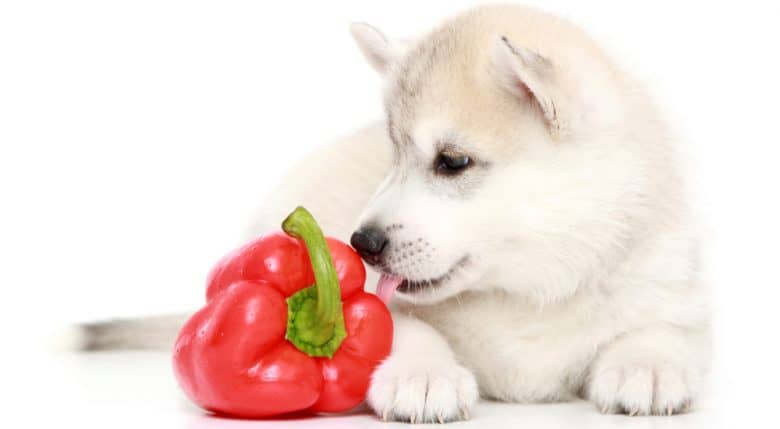

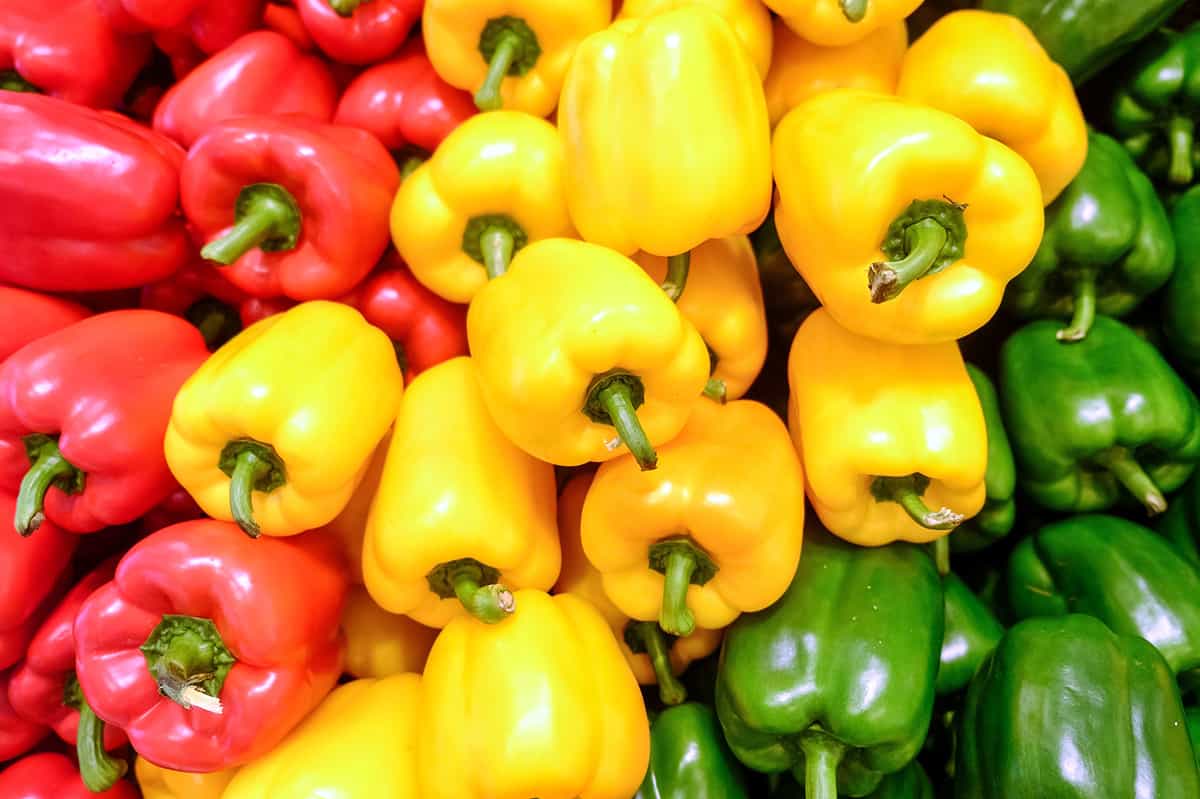




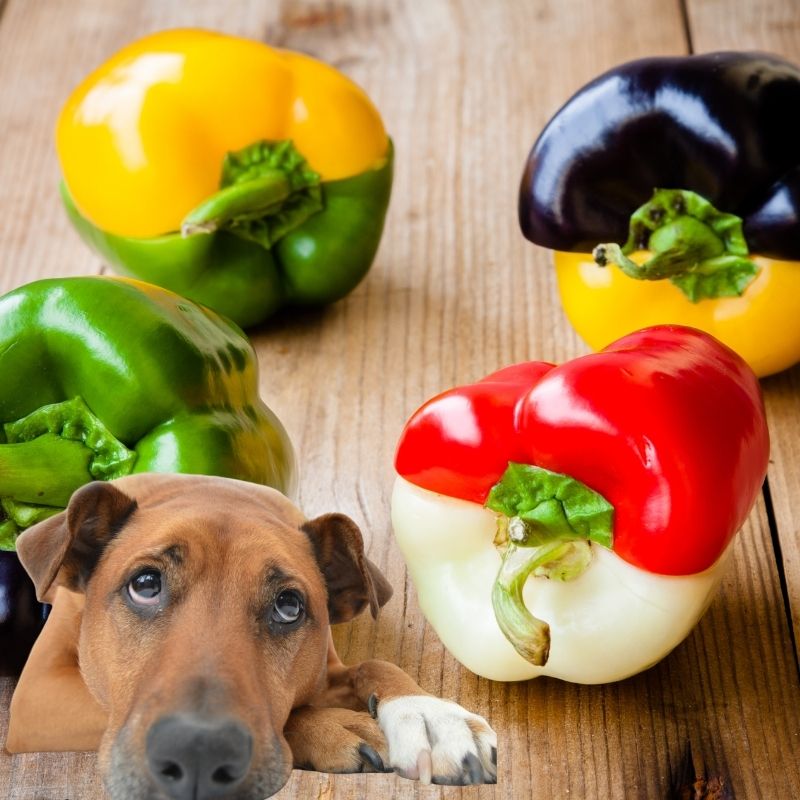
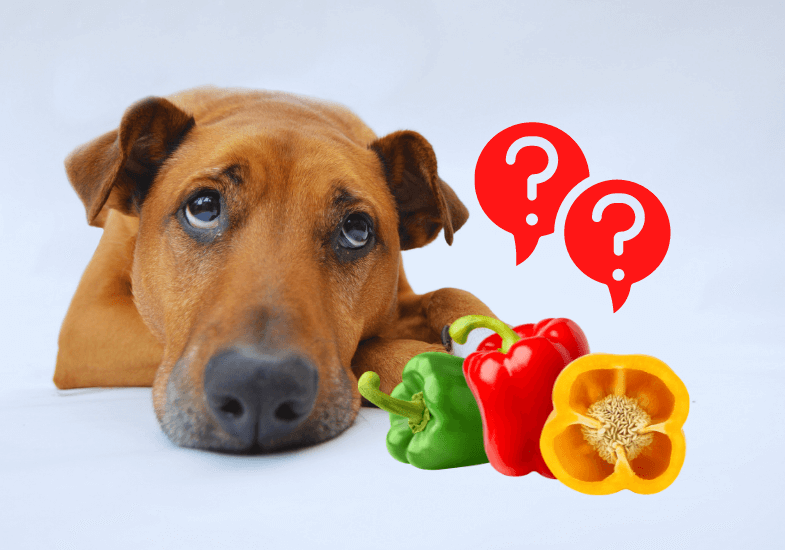
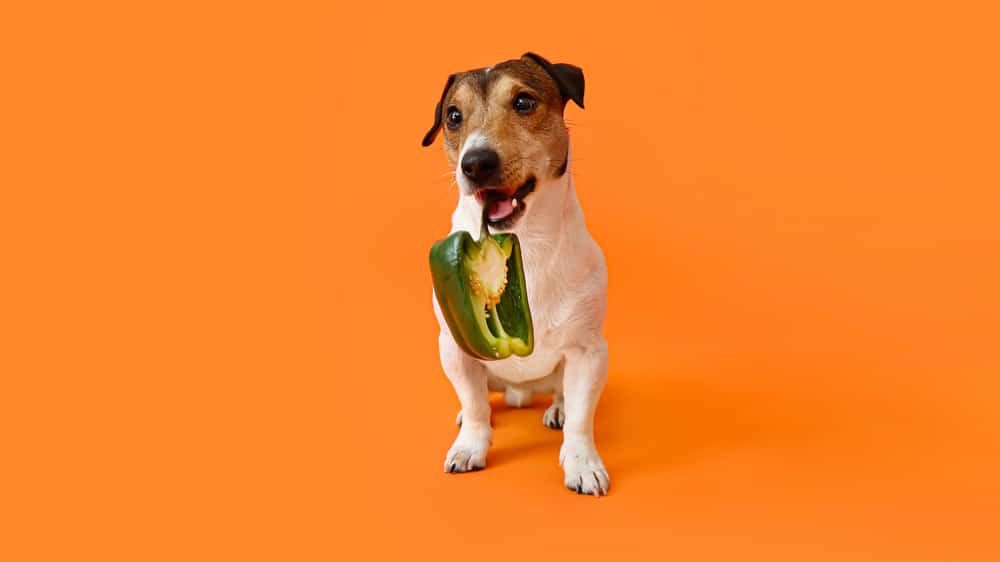


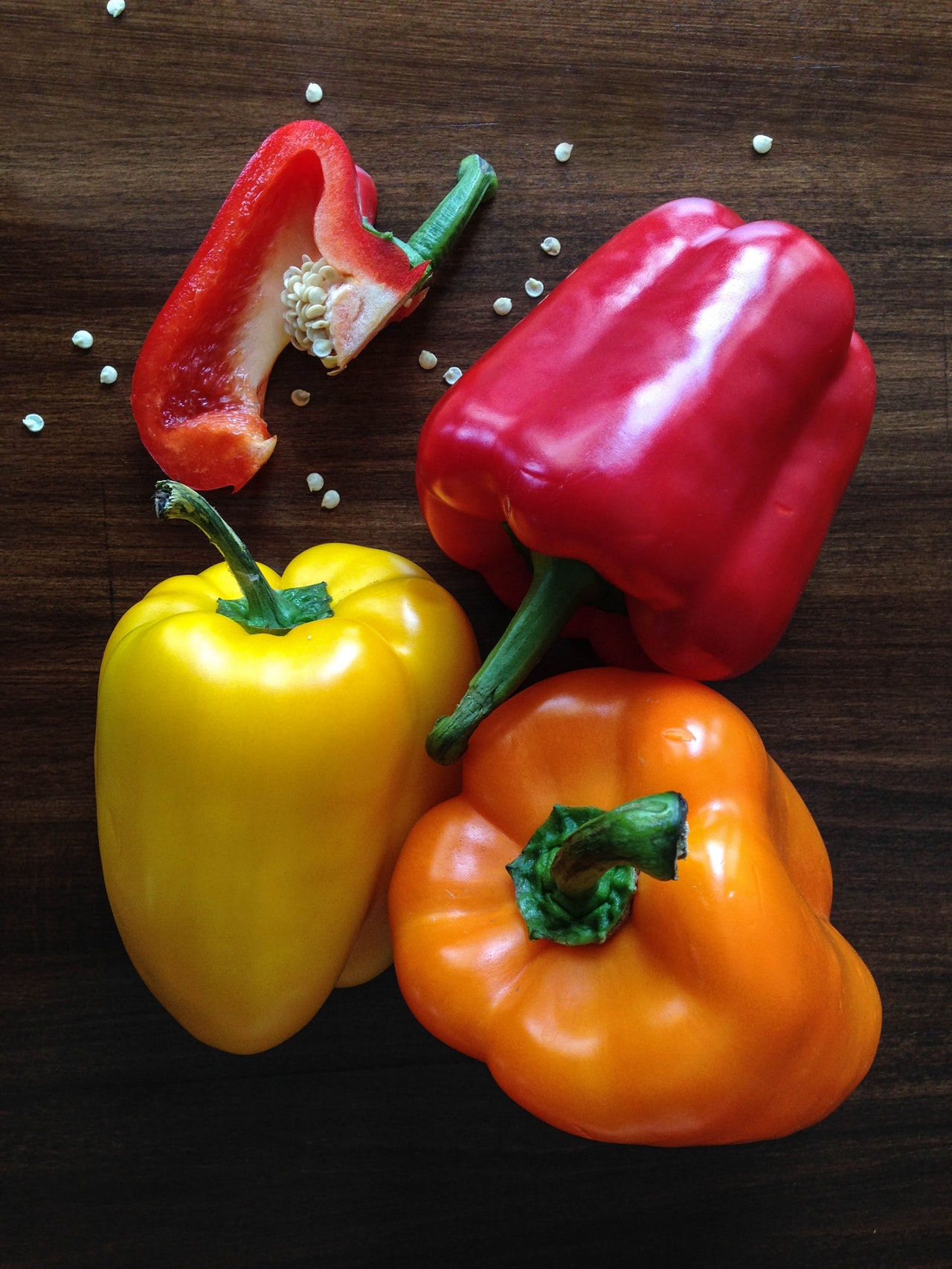
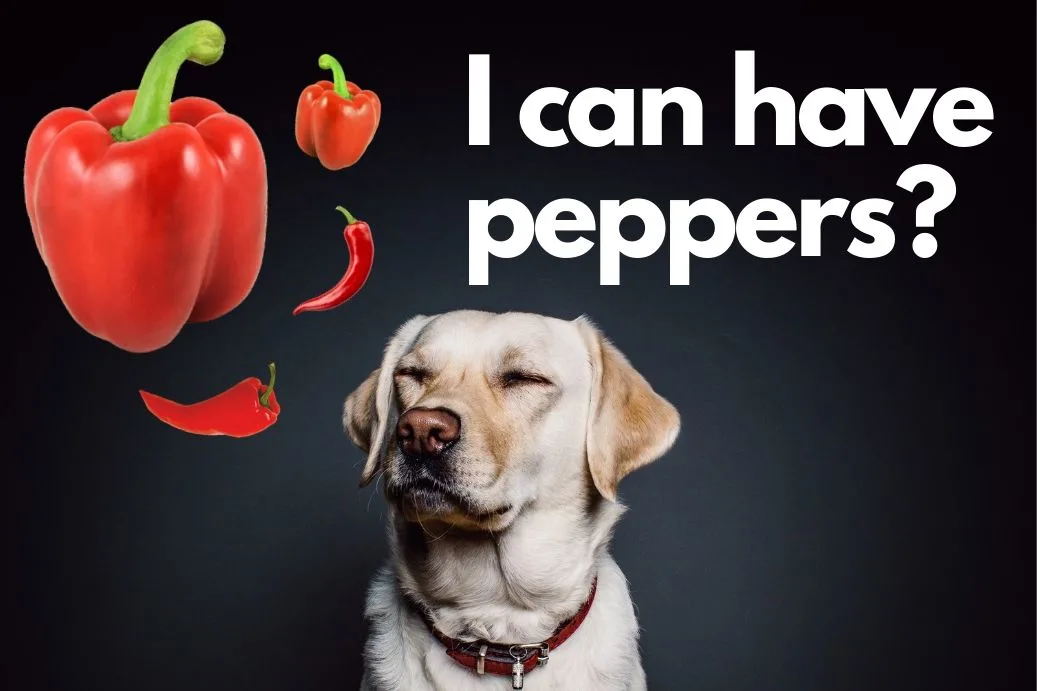


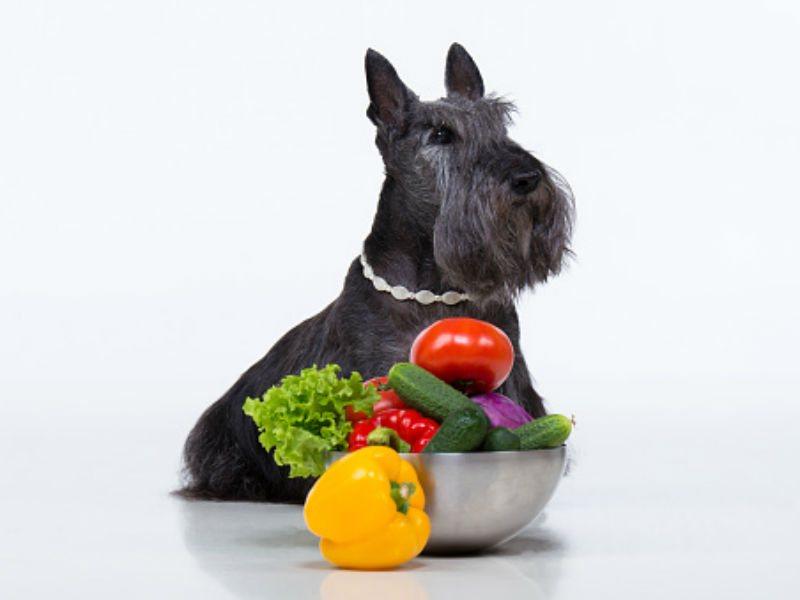

Hello ANKUSH PAL,
Yes my puppy likes bell peppers. I steam them and mush it and serve a little it mixed with roasted chicken. He enjoys it a lot. If your dog was deficient in a vitamin from their base diet, supplementing with vegetables may see an uptick in overall health. However – you need to take a long hard look at the base dog diet if this is the case.